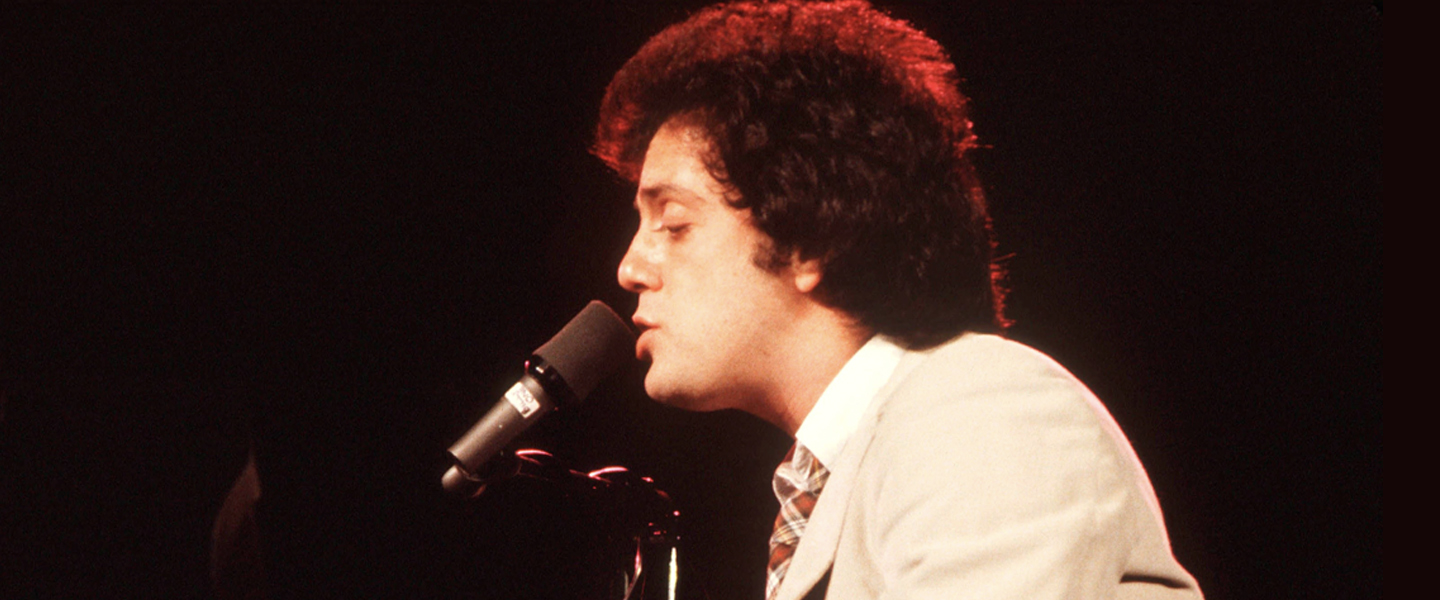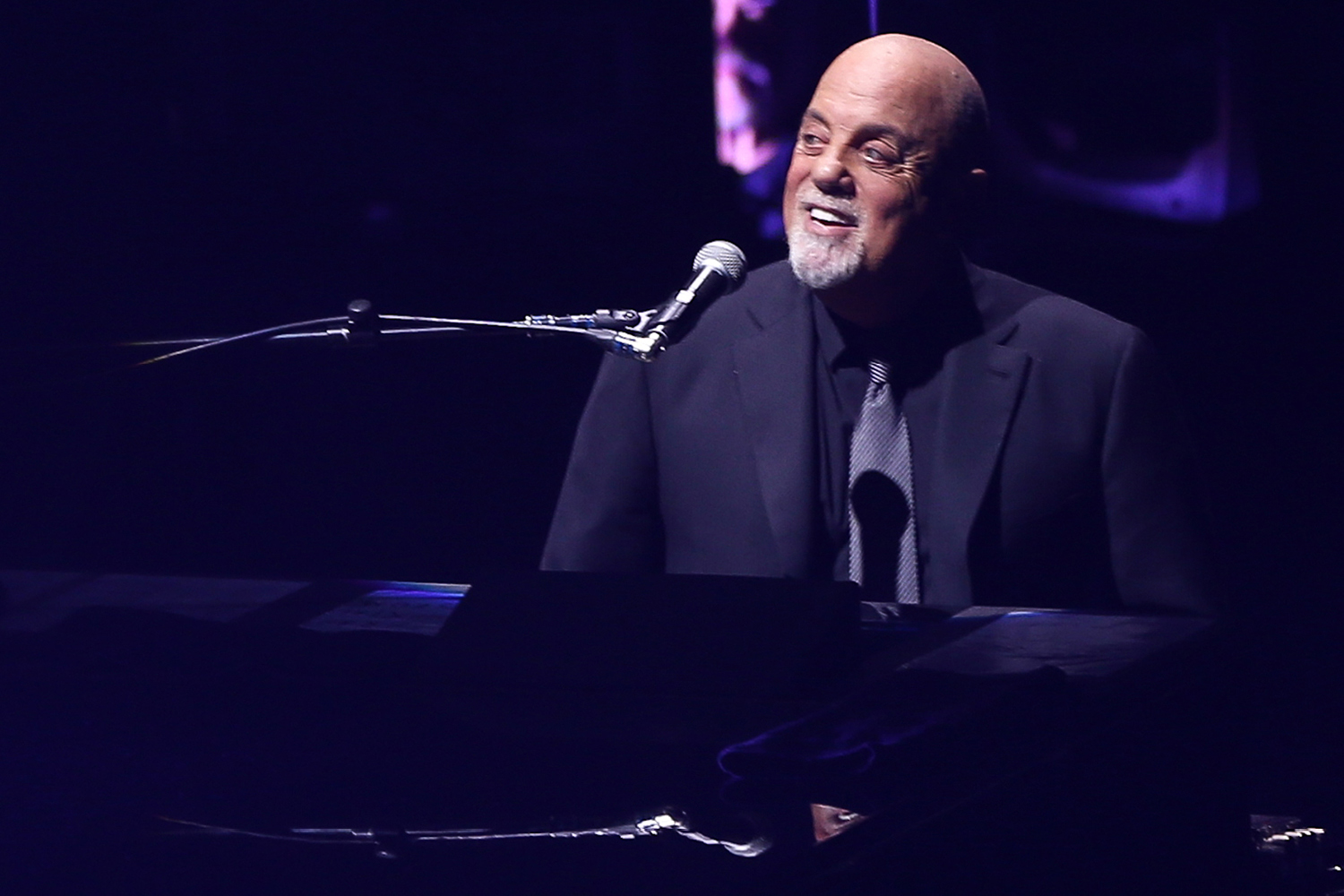Query: When Did Billy Joel Have a Stroke?
Billy Joel has never had a stroke. He has, however, struggled with mental health issues and substance abuse in the past. In 2002, he checked himself into a rehabilitation center for treatment.
Joel has been open about his struggles, and he has used his platform to raise awareness of mental health issues. He has also been a strong advocate for addiction recovery.
When Did Billy Joel Have a Stroke?
Billy Joel has never had a stroke. However, he has struggled with mental health issues and substance abuse in the past. In 2002, he checked himself into a rehabilitation center for treatment.
Joel has been open about his struggles, and he has used his platform to raise awareness of mental health issues. He has also been a strong advocate for addiction recovery.
- Mental health: Joel has struggled with depression and anxiety.
- Substance abuse: Joel has abused alcohol and drugs in the past.
- Rehabilitation: Joel checked himself into a rehabilitation center in 2002.
- Recovery: Joel has been sober since 2002.
- Advocacy: Joel has used his platform to raise awareness of mental health issues and addiction recovery.
Joel's story is an inspiration to others who are struggling with mental health issues and addiction. He shows that it is possible to overcome these challenges and live a full and happy life.
Mental health
Mental health issues can be a major contributing factor to stroke, as they can lead to unhealthy behaviors such as smoking, excessive drinking, and drug use. Additionally, mental health issues can make it difficult to manage stress, which is another major risk factor for stroke.
- Depression: Depression is a mood disorder that can cause feelings of sadness, hopelessness, and worthlessness. It can also lead to fatigue, difficulty concentrating, and changes in appetite and sleep. Depression has been linked to an increased risk of stroke, even in people who do not have other risk factors.
- Anxiety: Anxiety is a feeling of nervousness, worry, or fear. It can be caused by a variety of factors, including genetics, personality traits, and life experiences. Anxiety has been linked to an increased risk of stroke, particularly in people who have other risk factors such as high blood pressure or high cholesterol.
It is important to note that not everyone who struggles with mental health issues will have a stroke. However, it is important to be aware of the potential risks and to take steps to manage your mental health. If you are struggling with mental health issues, talk to your doctor. There are a variety of effective treatments available that can help you manage your symptoms and reduce your risk of stroke.
Substance abuse
Substance abuse is a major risk factor for stroke. Alcohol and drugs can damage the heart and blood vessels, and they can also lead to high blood pressure and other health problems that increase the risk of stroke.
- Alcohol: Alcohol can damage the heart muscle and lead to high blood pressure. It can also increase the risk of blood clots, which can block arteries and cause a stroke.
- Drugs: Drugs such as cocaine and methamphetamine can increase the heart rate and blood pressure. They can also damage the blood vessels and lead to inflammation, which can increase the risk of stroke.
Joel has been open about his struggles with substance abuse, and he has said that he believes it contributed to his health problems. He has also said that he is grateful to be alive and that he is committed to living a healthy life.
Joel's story is a reminder that substance abuse is a serious problem that can have devastating consequences. It is important to get help if you are struggling with substance abuse. There are a variety of effective treatments available that can help you overcome addiction and live a healthy life.
Rehabilitation
Billy Joel's decision to check himself into a rehabilitation center in 2002 was a major turning point in his life. He had been struggling with mental health issues and substance abuse for many years, and his health was beginning to suffer. Rehabilitation gave him the opportunity to get the help he needed to overcome his addiction and start living a healthier life.
The rehabilitation process can be challenging, but it is also incredibly rewarding. Joel has said that rehab saved his life, and he is grateful for the opportunity to have gotten the help he needed. He has been sober since 2002, and he is now a strong advocate for addiction recovery.
Joel's story is an inspiration to others who are struggling with addiction. It shows that it is possible to overcome addiction and live a full and happy life. If you are struggling with addiction, please know that there is help available. There are many resources available to help you get started on the road to recovery.
Recovery
Billy Joel's recovery from addiction is a major factor in his overall health and well-being. Alcohol and drug abuse can take a toll on the body, and quitting can help to reduce the risk of a variety of health problems, including stroke.
In Joel's case, quitting alcohol and drugs likely helped to improve his heart health and reduce his risk of stroke. Additionally, quitting smoking and eating a healthier diet may have also contributed to his improved health.
Joel's story is a reminder that it is never too late to make a change. If you are struggling with addiction, please know that there is help available. There are many resources available to help you get started on the road to recovery.
Advocacy
Billy Joel's advocacy work has helped to raise awareness of mental health issues and addiction recovery, and it has inspired others to seek help.
- Speaking out: Joel has spoken openly about his own struggles with mental health and addiction, and he has used his platform to encourage others to seek help.
- Supporting organizations: Joel has supported a number of organizations that provide mental health and addiction treatment services, and he has helped to raise funds for these organizations.
- Working with policymakers: Joel has worked with policymakers to advocate for increased funding for mental health and addiction treatment services.
- Challenging stigma: Joel's advocacy work has helped to challenge the stigma associated with mental health issues and addiction, and he has helped to create a more open and understanding environment.
Joel's advocacy work has made a real difference in the lives of many people. He has helped to raise awareness of mental health issues and addiction, and he has inspired others to seek help. His work has also helped to reduce the stigma associated with these issues, and he has helped to create a more open and understanding environment.
FAQs about Billy Joel's Stroke
Billy Joel has never had a stroke. However, he has struggled with mental health issues and substance abuse in the past. In 2002, he checked himself into a rehabilitation center for treatment.
Question 1: Did Billy Joel have a stroke?
Answer: No, Billy Joel has never had a stroke.
Question 2: What health issues has Billy Joel struggled with?
Answer: Billy Joel has struggled with mental health issues, including depression and anxiety, as well as substance abuse.
Question 3: When did Billy Joel check into rehab?
Answer: Billy Joel checked himself into a rehabilitation center in 2002.
Question 4: Is Billy Joel still sober?
Answer: Yes, Billy Joel has been sober since 2002.
Question 5: How has Billy Joel used his platform to help others?
Answer: Billy Joel has used his platform to raise awareness of mental health issues and addiction recovery, and he has supported organizations that provide treatment services.
Question 6: What is Billy Joel's legacy?
Answer: Billy Joel is a legendary singer-songwriter who has sold over 150 million records worldwide. He is known for his catchy melodies, heartfelt lyrics, and piano-driven music. He is also a strong advocate for mental health and addiction recovery.
Summary of key takeaways or final thought:
Billy Joel is a talented musician who has overcome many challenges in his life. He is an inspiration to others who are struggling with mental health issues or addiction. His music and advocacy work have made a real difference in the world.
Transition to the next article section:
Tips on Recognizing and Responding to Stroke Symptoms
Strokes are a medical emergency, and it is important to be able to recognize the signs and symptoms. The acronym "FAST" can help you remember the most common symptoms of stroke:
F: Face drooping
A: Arm weakness
S: Speech difficulty
T: Time to call for help
If you experience any of these symptoms, it is important to call for help immediately. Strokes can be treated if they are caught early, but the longer you wait, the more damage can be done to the brain.
Here are some additional tips on recognizing and responding to stroke symptoms:
Tip 1: Be aware of the risk factors for stroke, such as high blood pressure, high cholesterol, and diabetes.
Tip 2: Pay attention to any sudden changes in your health, such as numbness or weakness on one side of your body, difficulty speaking or understanding speech, or trouble seeing.
Tip 3: If you think someone is having a stroke, call for help immediately. Do not wait to see if the symptoms go away.
Tip 4: While waiting for help to arrive, keep the person calm and comfortable. Do not give them any food or drink.
Tip 5: If the person is unconscious, place them in the recovery position (on their side with their head tilted back and their chin lifted).
Summary of key takeaways or benefits:
- Strokes are a medical emergency, and it is important to be able to recognize the signs and symptoms.
- The acronym "FAST" can help you remember the most common symptoms of stroke: face drooping, arm weakness, speech difficulty, and time to call for help.
- If you experience any of these symptoms, it is important to call for help immediately.
- Strokes can be treated if they are caught early, but the longer you wait, the more damage can be done to the brain.
Transition to the article's conclusion:
By following these tips, you can help to recognize and respond to stroke symptoms quickly and effectively. This can help to save lives and prevent serious disability.
Conclusion
While Billy Joel has never had a stroke, his personal experiences with mental health issues and substance abuse serve as a reminder of the importance of seeking help and living a healthy lifestyle.
Strokes are a serious medical emergency, and it is important to be aware of the signs and symptoms. If you or someone you know experiences any of the symptoms of stroke, call for help immediately. Strokes can be treated if they are caught early, but the longer you wait, the more damage can be done to the brain.
Unleash The Power: Unlocking The Secrets Of Keys Tennis Players
Uncover The Truth: Insights Into The "Sydney May OnlyFans Leaked" Incident
Unveiling Busquets' Net Worth: A Journey Of Wealth And Success

How Billy Joel’s ‘Vienna’ Went From a Deep Cut to His Most Popular Song

Did Billy Joel Ever OutPerform The Beatles? An Exploration Of The
ncG1vNJzZmign5y8uLHSamWapaNoe6W1xqKrmqSfmLKiutKpmJydo2OwsLmOsJ%2Bepl2ZtqV5waKjpbFdn7ymuIyhmK%2BdXZZ6tMDRqKKeZpipuq0%3D